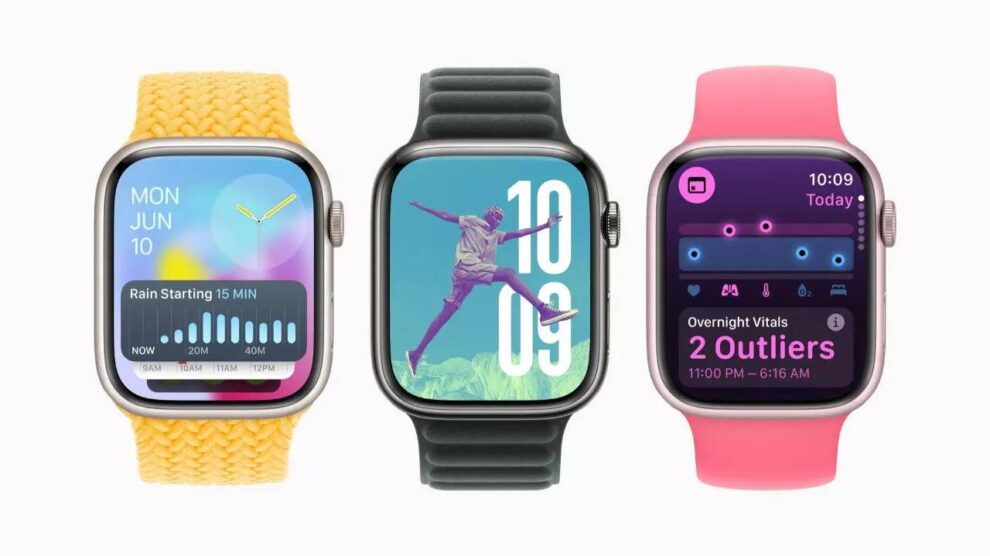Apple continues to prioritize user safety and well-being with the upcoming release of watchOS 11. One of the standout features in this update is the new Check In functionality for outdoor workouts, designed to provide peace of mind for both athletes and their loved ones.

Understanding Check In
The Check In feature allows Apple Watch users to share crucial information about their outdoor workouts with a designated contact. This enhanced level of connectivity can be particularly reassuring for those who exercise alone or in potentially risky environments.
Key Information Shared
- Workout initiation
- User’s current location
- Tracked workout route (when applicable)
- iPhone battery level
- Cellular service status
How to Use Check In
Accessing the Check In feature is designed to be simple and intuitive:
- Open the Workout app on your Apple Watch
- Swipe right on the Workout screen
- Select the Check In option
- Choose your designated contact
- Begin your workout
The Safety Implications
The introduction of Check In represents a significant step forward in personal safety for outdoor fitness enthusiasts. Here’s how it can make a difference:
1. Real-time Monitoring
By sharing live location data and workout progress, a trusted contact can keep tabs on the user’s whereabouts and activity. This can be crucial in quickly identifying if something goes awry during a workout.
2. Battery and Connectivity Awareness
Sharing the phone’s battery level and cellular service status helps contacts understand if communication might become difficult. Low battery or poor service could explain why a user isn’t responding to messages or calls.
3. Route Tracking
For workouts that involve a specific route (like running or cycling), sharing this information allows contacts to know the user’s planned path. This can be invaluable if assistance is needed at any point along the route.
4. Peace of Mind
For both the user and their designated contact, Check In provides reassurance. Users can exercise with the knowledge that someone is aware of their activity, while loved ones can feel more at ease about solo workouts.
Customization and Automation
Apple has built flexibility into the Check In feature to suit various user preferences:
Automatic Reminders
Users can set up automatic reminders to activate Check In whenever they start an outdoor workout. This ensures that the safety feature isn’t forgotten, even during spontaneous exercise sessions.
Accessing Settings
To customize Check In preferences:
- Open the Settings app on your Apple Watch
- Navigate to the Workout section
- Look for Check In options
- Adjust settings to your liking
Potential Use Cases
The Check In feature can be particularly beneficial in various scenarios:
1. Solo Night Runs
Runners who prefer early morning or late evening workouts can share their routes and progress, enhancing safety during low-light conditions.
2. Trail Hiking
Hikers venturing into remote areas can keep contacts informed of their location, especially useful if they veer off the planned route.
3. Long-Distance Cycling
Cyclists embarking on extended rides can provide real-time updates to family members, allowing for better coordination of rest stops or pickup points.
4. Open Water Swimming
While water may affect connectivity, initiating Check In before an open water swim can still provide valuable starting location and time information.
Privacy Considerations
As with any feature involving location sharing, privacy is a paramount concern. Users should consider the following:
Choosing Trusted Contacts
Carefully select who receives your Check In information. This should be someone you trust implicitly with your location and activity data.
Duration of Sharing
Be mindful of how long your information is being shared. Consider disabling Check In once your workout is complete and you’re in a safe location.
Data Usage
Understand how Apple stores and processes the shared data. While Apple has a strong privacy track record, it’s always wise to be informed about data handling practices.
Limitations and Considerations
While Check In is a powerful safety tool, users should be aware of potential limitations:
1. Cellular Dependency
The effectiveness of real-time updates relies on cellular connectivity. In areas with poor coverage, information may not be transmitted immediately.
2. Battery Life Impact
Continuous location sharing and data transmission may have an impact on the Apple Watch’s battery life. Users should monitor battery levels, especially during longer workouts.
3. False Sense of Security
While Check In enhances safety, it’s not a substitute for personal awareness and caution. Users should still take standard safety precautions during their workouts.
Future Implications
The introduction of Check In in watchOS 11 opens up interesting possibilities for future developments:
1. Integration with Emergency Services
Future iterations could potentially allow for direct communication with local emergency services if unusual activity is detected.
2. AI-Powered Insights
Machine learning could be applied to analyze workout patterns and provide predictive safety recommendations.
3. Expanded Activity Types
The feature could be adapted for other outdoor activities beyond traditional workouts, such as skiing or rock climbing.
Conclusion
The Check In feature in watchOS 11 represents a significant step forward in merging fitness tracking with personal safety. By providing real-time information sharing during outdoor workouts, Apple is addressing a crucial concern for many exercise enthusiasts. As the feature rolls out and users begin to incorporate it into their routines, it will be interesting to see how it evolves and potentially influences similar developments across the wearable technology industry.
It’s worth noting that as watchOS 11 is currently in the developer beta stage, there may be changes or refinements to the Check In feature before the public release. Users should stay tuned for the official release and any accompanying documentation to fully understand and leverage this new safety tool.










Add Comment